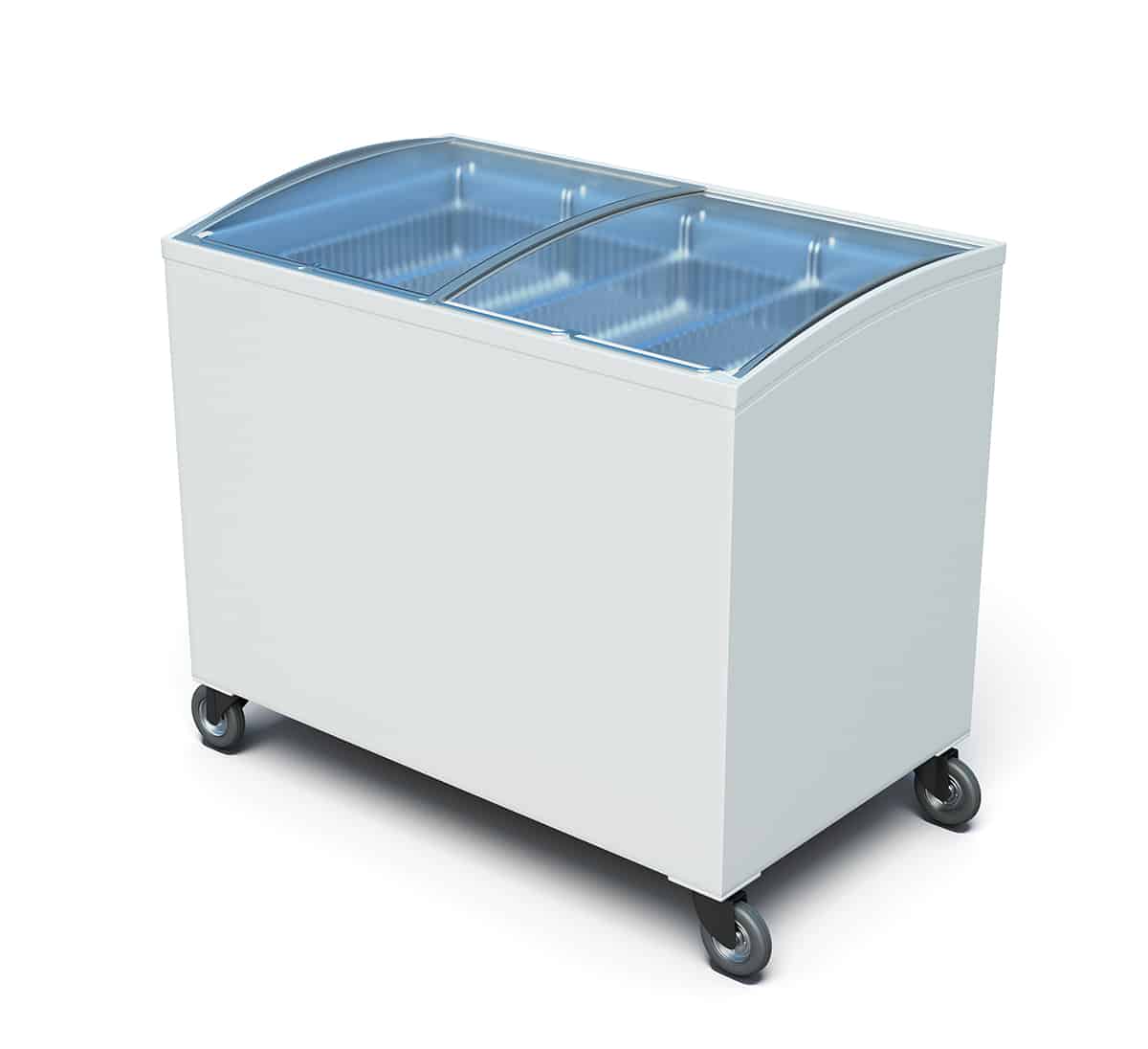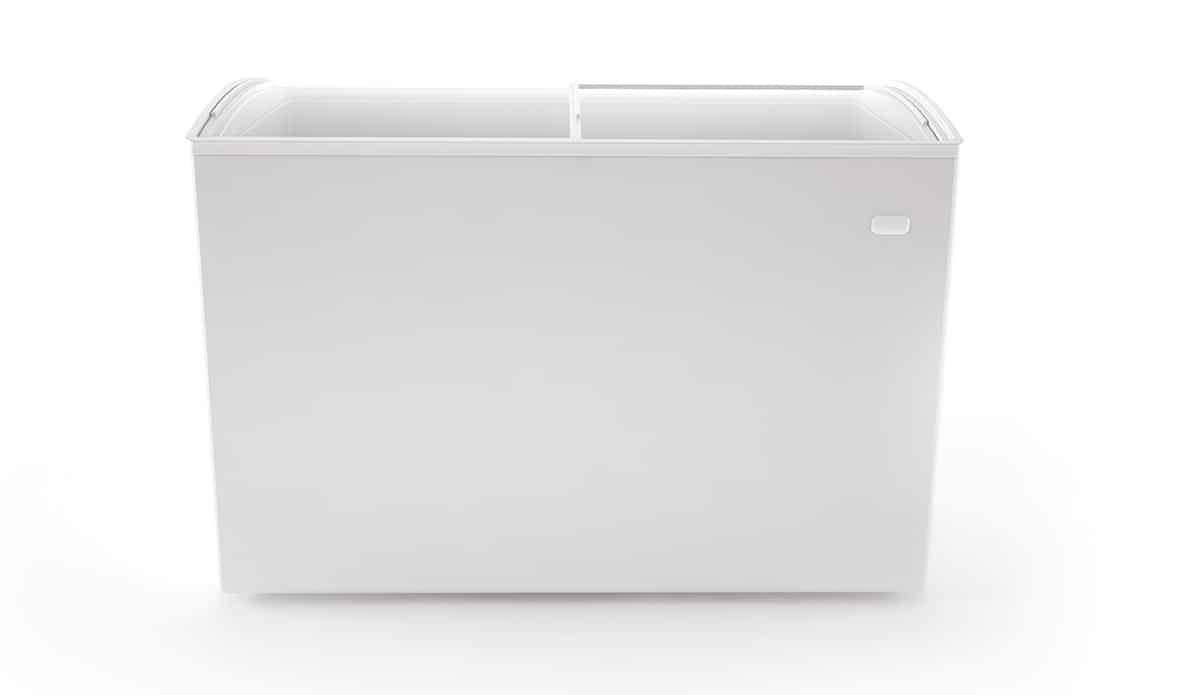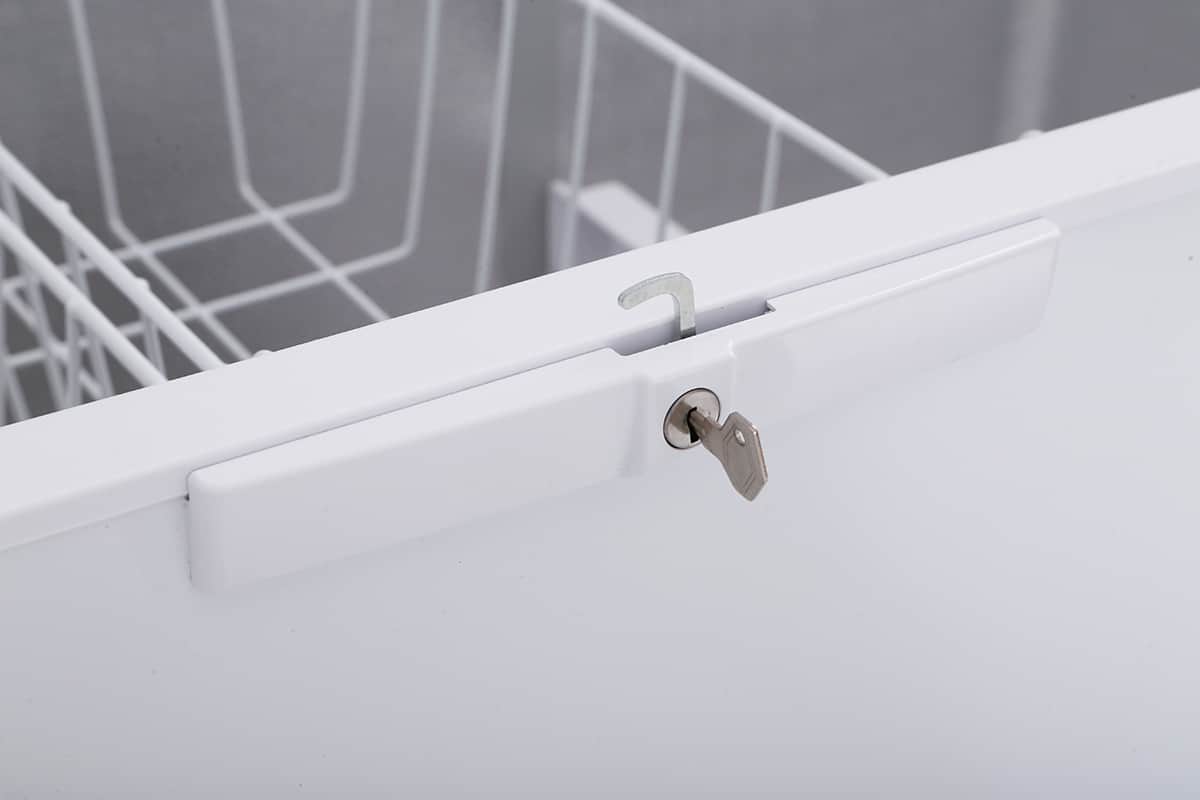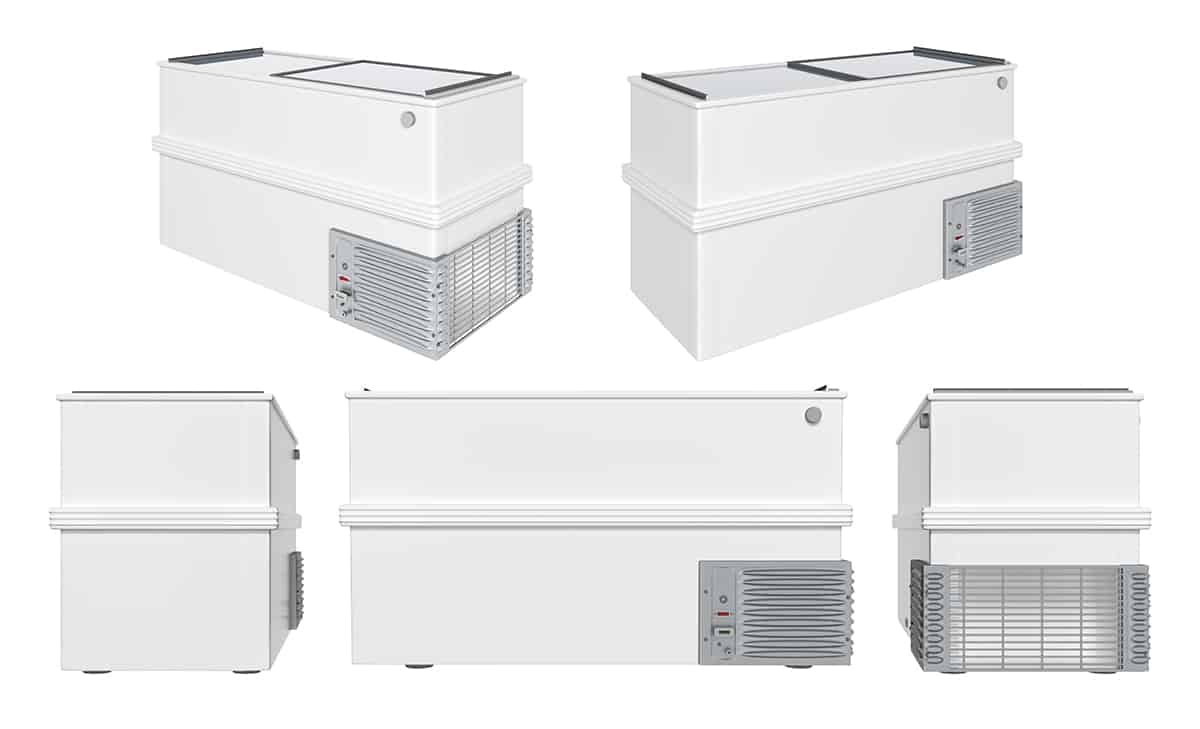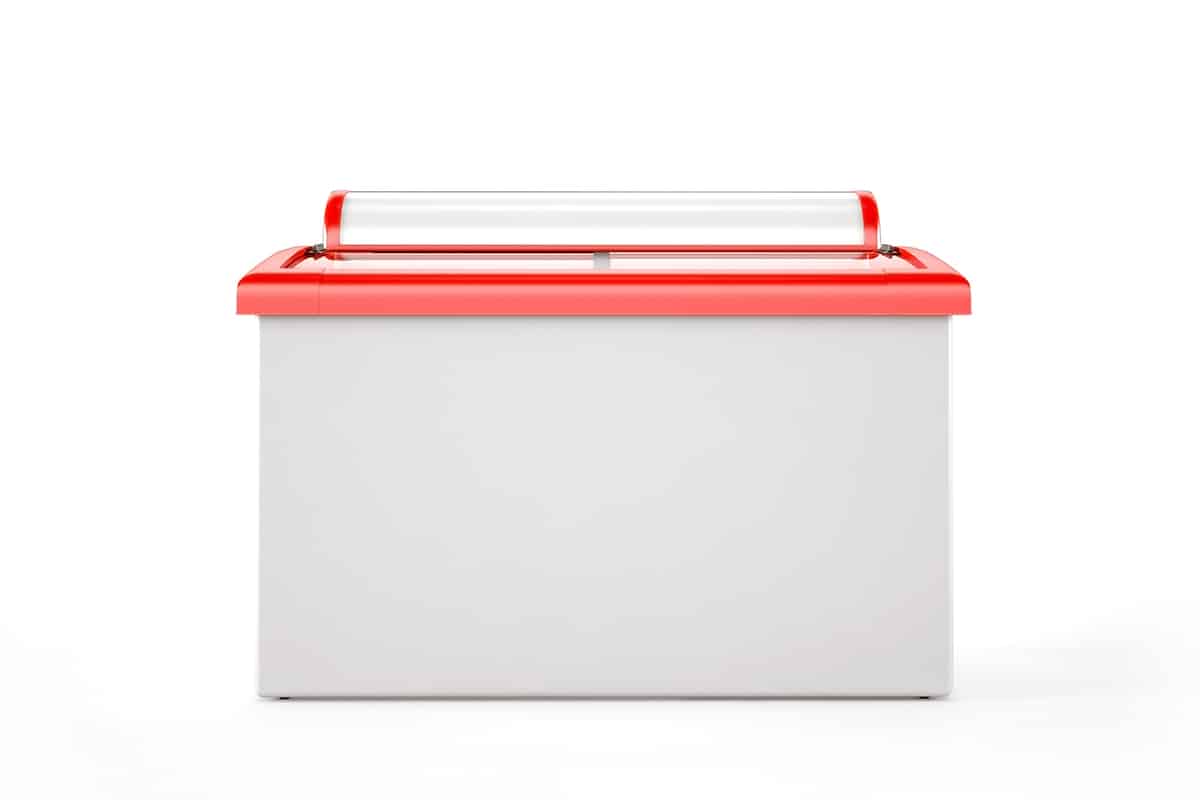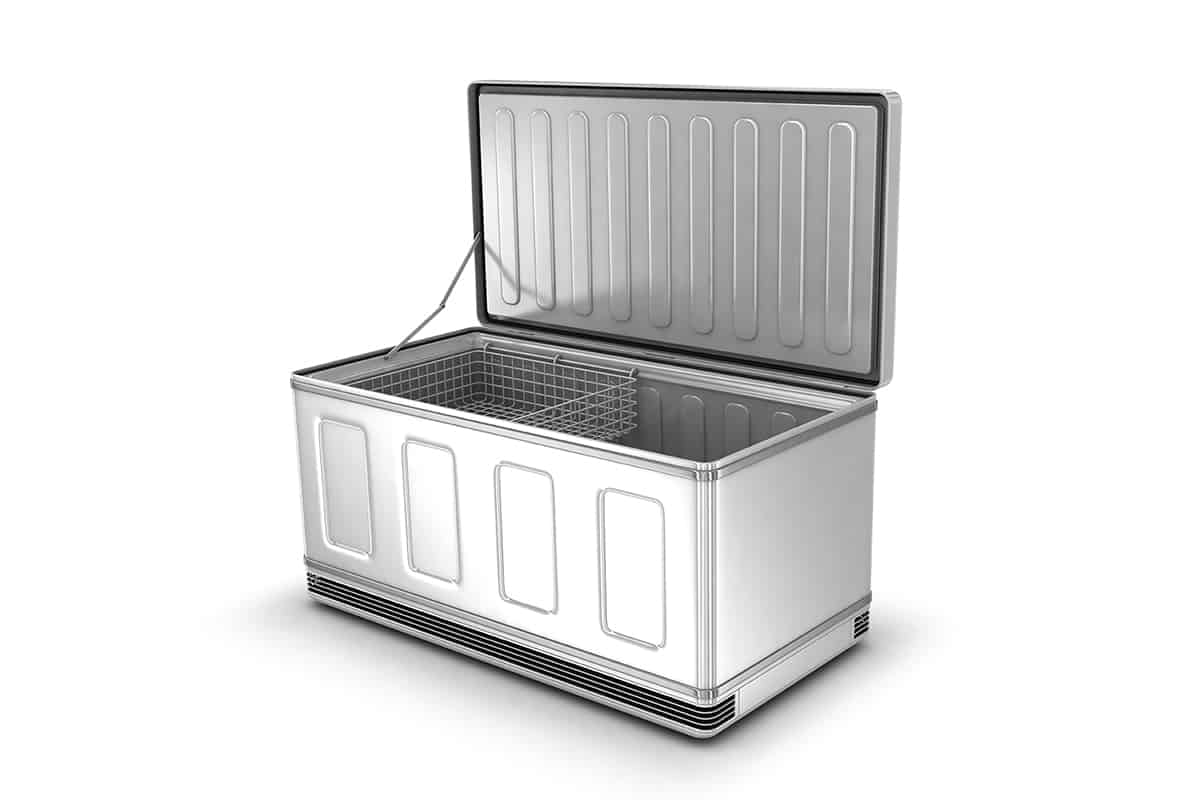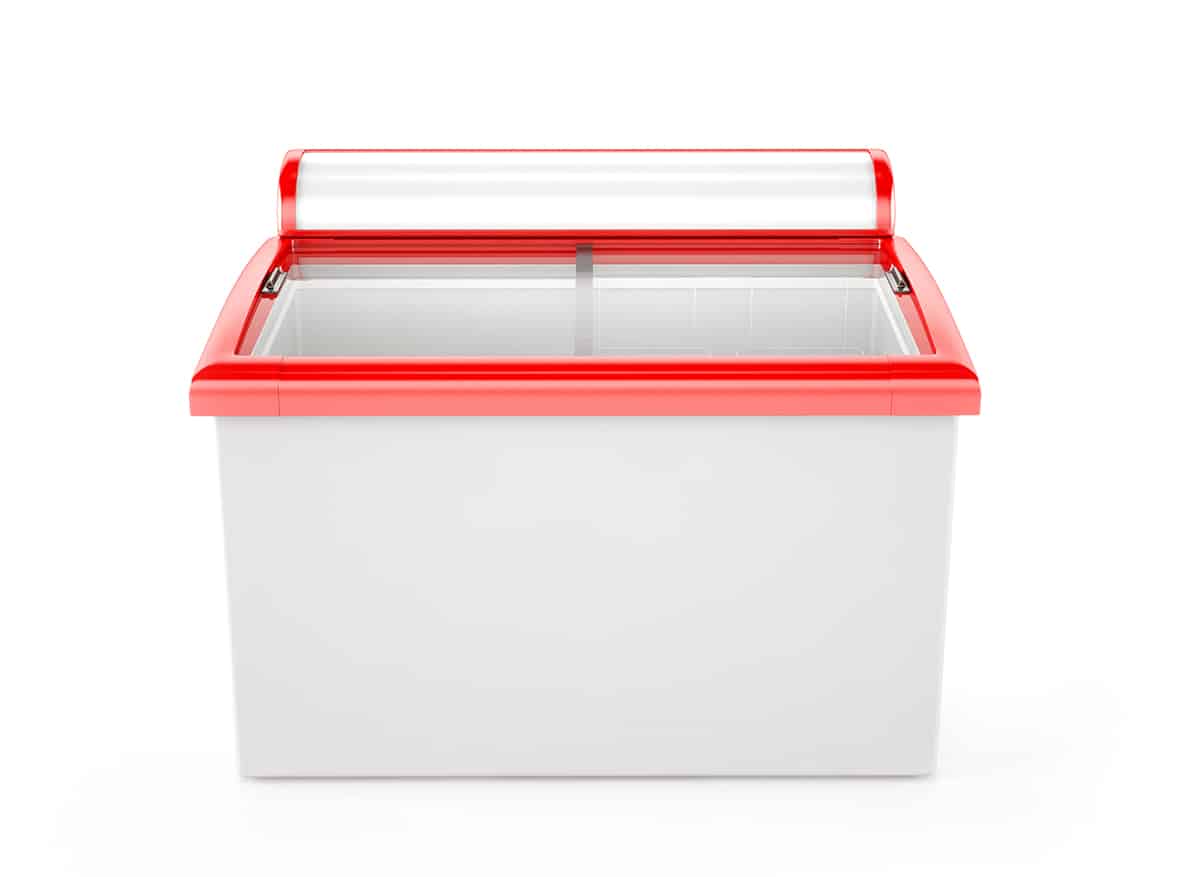With the responsibility of a new home comes the task of filling it with all the necessary appliances to make it a comfortable and functional space. One of the most important appliances is the freezer, where you can store your perishable food and leftovers to enjoy at a later time. If you decide to purchase a chest freezer, it wouldn’t hurt to know how much it weighs.
Chest freezers are generally heavy appliances with an average weight of around 95 pounds. The weight can vary depending on the size, model, and features of the chest freezer. A small chest freezer may weigh between 50-70 pounds, while a larger one can weigh up to 150 pounds or more.
In this guide, we’ll cover the basics of chest freezers, including how it compares to upright freezers. I’ll also provide a brief chart that shows the weights of popular chest freezer models.
What Is a Chest Freezer?
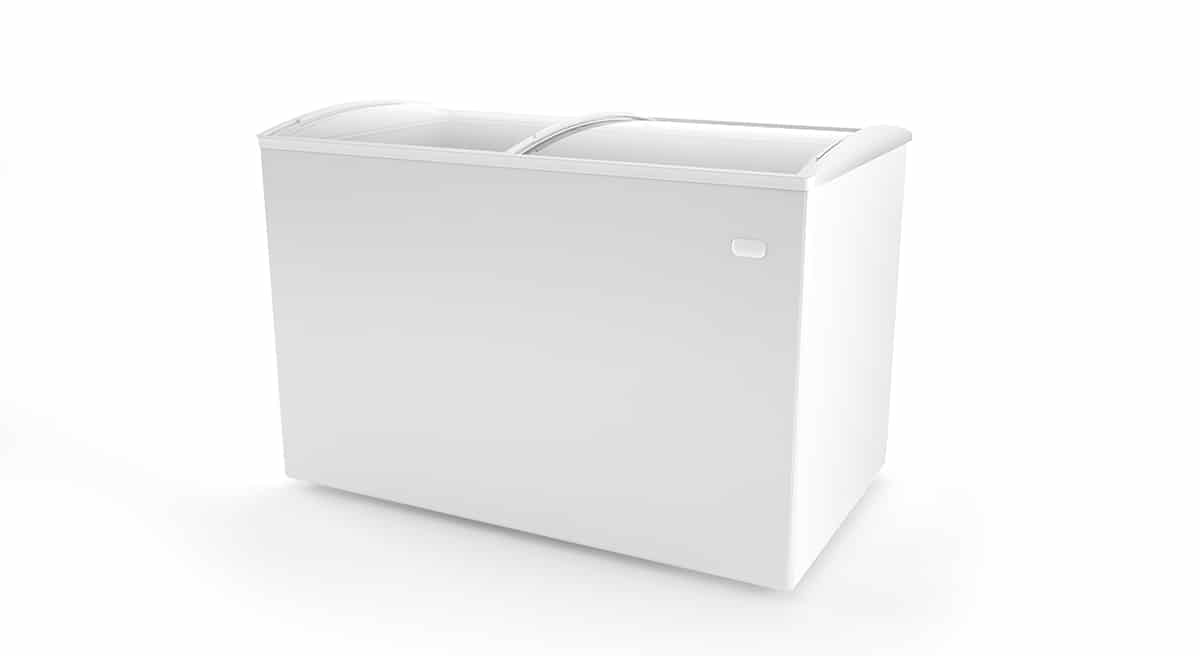
A chest freezer is a type of freezer that has a horizontal orientation and an open top, unlike an upright freezer which has a vertical orientation and a door. The design of a chest freezer allows for efficient storage of large items and provides easy access to the items stored inside. The lid of a chest freezer opens upwards, revealing the interior of the freezer which has a flat floor, making it easier to store and remove large items.
Chest freezers are ideal for individuals who want to store bulk items or who need to store items for an extended period of time. Chest freezers are more energy-efficient than upright freezers as the cold air is contained within the freezer and does not escape when the door is opened, reducing the need for the freezer to work harder to maintain the desired temperature.
This type of freezer also have a larger capacity, making them ideal for families who purchase food in bulk and for people who like to preserve fruits and vegetables from their garden. Chest freezers come in various sizes and capacities, making it possible to choose the perfect freezer for your needs.
Benefits of Chest Freezers
Chest freezers offer several benefits over upright freezers. Firstly, chest freezers have a larger capacity, making them ideal for families who purchase food in bulk or for people who like to preserve fruits and vegetables from their gardens. They are also more energy-efficient as the cold air is contained within the freezer and does not escape when the lid is opened, reducing the need for the freezer to work harder to maintain the desired temperature.
Another benefit of chest freezers is that they have a flat floor, making it easier to store and remove large items. The open top design of a chest freezer also provides easy access to the items stored inside, so you don’t have to dig through a pile of items to find what you are looking for.
Chest freezers are also more durable than upright freezers. The flat lid and horizontal design make chest freezers less susceptible to wear and tear, and they can better withstand heavy items being placed on top. They also tend to last longer than upright freezers, making them a more cost-effective option in the long term.
Finally, chest freezers offer more versatility in terms of placement, as they can be installed in a garage, basement, or other out-of-the-way location. This is particularly useful for people who want to store items for an extended period of time, as the freezer can be placed in a cool and convenient location.
How Much Do Chest Freezers Weigh?
Chest freezers are known for their spacious interiors, providing ample storage space for your frozen food. While their spaciousness is a big advantage, it also comes with a weight penalty. On average, chest freezers weigh around 95 pounds.
However, the exact weight of a chest freezer can vary greatly depending on the model, size, and materials used in its construction. Some smaller models can weigh as little as 60 pounds, while larger models can weigh up to 150 pounds or more.
Here, we’re going to take a look at the weights of popular chest freezer models.
| Chest Freezer Model | Storage Capacity (cu. ft.) | Weight (lbs.) | Weight (kg) |
| Midea MRC070S0AWW | 7 | 57.2 | 26 |
| Whynter FM-85G | 2.83 | 71 | 32 |
| Avanti CF24Q0W | 2.5 | 45 | 20 |
| Frigidaire FFCL2542AW | 24.8 | 221 | 100 |
| Midea MRC050S0AWW | 5 | 59.5 | 27 |
| Midea MRC04M3AWW | 3.5 | 53.9 | 24 |
| Danby DCF072A3BDB | 7.2 | 90.39 | 41 |
| HP FM-452SG | 1.48 | 52 | 24 |
What to Look for in a Chest Freezer
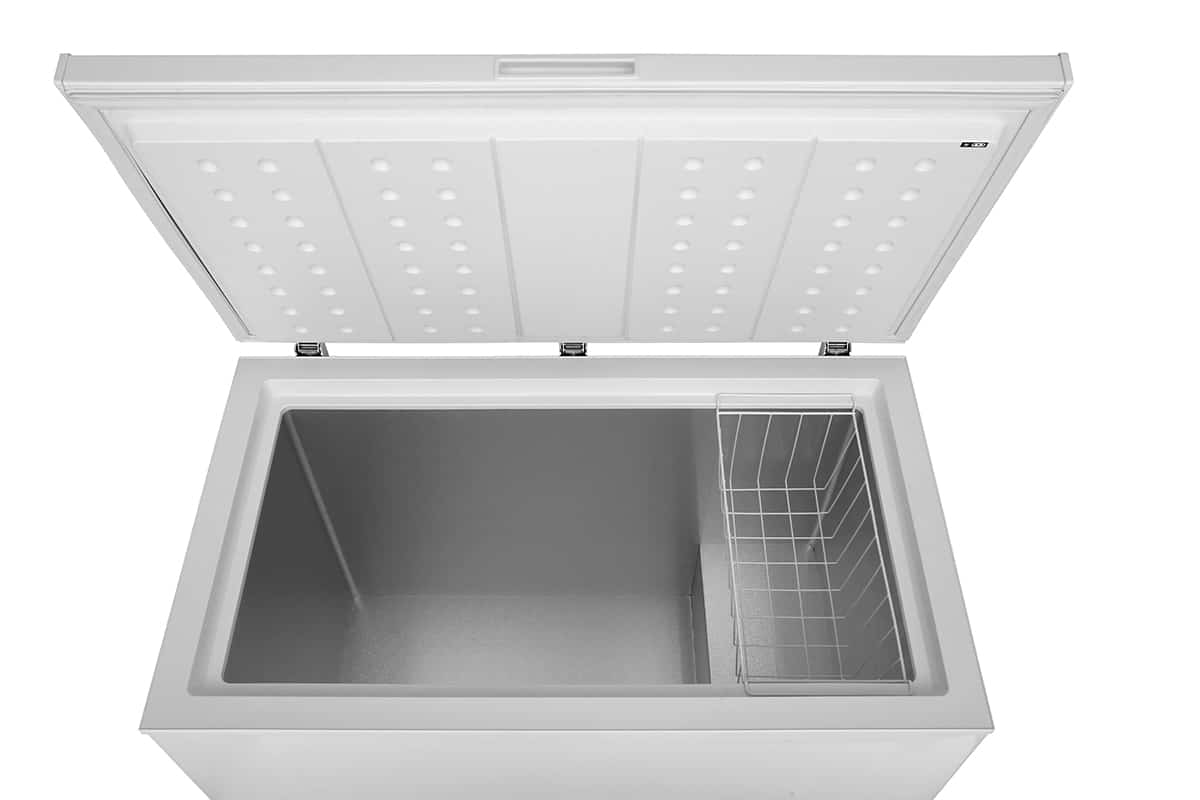
If you’re still searching for a chest freezer, you don’t have to choose any of the models mentioned above. However, what you should do is follow this brief guide to ensure that you get the best bang for your buck.
1. Freezer capacity
A larger capacity freezer can store more food and is ideal for families who buy in bulk or for those who like to stock up on frozen food. On the other hand, if you have limited space or do not need a lot of freezer storage, a smaller-capacity chest freezer may be a better fit. It’s important to choose the right freezer capacity to meet your needs, so you can store enough food to feed your family while also making the most of the space you have available.
2. Energy efficiency
An inefficient freezer can consume more energy, leading to higher monthly electricity bills. Energy Star rating is a standard established by the U.S. Environmental Protection Agency (EPA) to help consumers identify energy-efficient appliances. A freezer with a higher Energy Star rating is more efficient and uses less energy compared to one with a lower rating. Choosing an Energy Star rated chest freezer can help save on energy costs, reduce greenhouse gas emissions, and protect the environment.
3. Number of shelves
With a larger number of shelves, the items can be separated and stored more efficiently, reducing the likelihood of having to dig through the contents of the freezer to find what you’re looking for. Furthermore, having multiple shelves allows you to store items of different sizes, making better use of the available space and maximizing the freezer’s storage capacity.
